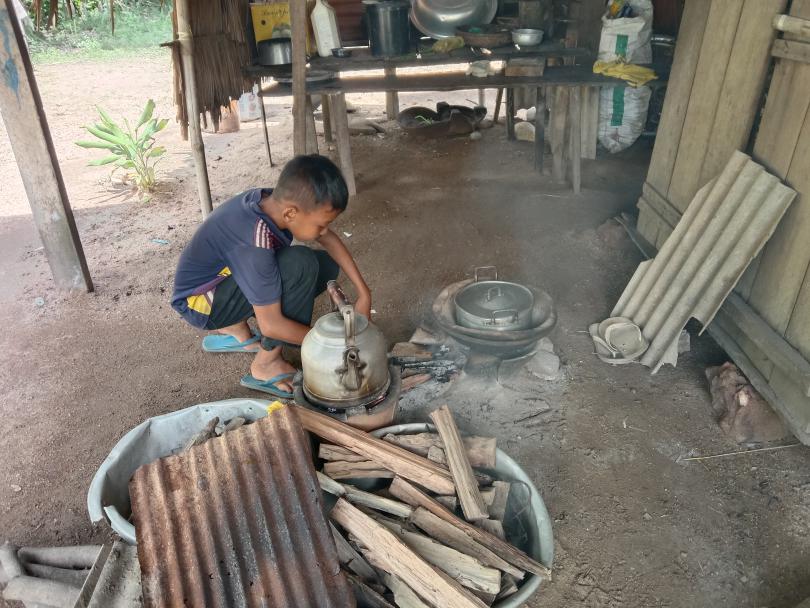With the Right Support, Children Can Break Barriers

Ol Sochen, 14, is a grade 5 student in a rural village in Rolea B'ier commune in Kampong Chhnang province. Sochen lives with his grandmother in a small house. Sadly, when Sochen was 3 months old, his parents died. Sochen's life has been difficult, and he often struggled with school and did not want to attend regularly.
Sochen explained that he felt embarrassed around his classmates because he failed many subjects during school exams – this made him feel very upset. Sochen also had household chores that interfered with his schooling. He grows crops on a small amount of land, and he forages for crabs, frogs, fishes and snails in the rice fields so that he and his grandmother have food to eat. Sochen's grandmother is elderly, so he does his best to help with household chores like cleaning the dishes, washing clothes, and cooking food.
"Sometimes I was invited to play Pin Peat[1] music during the festival to earn some money to support my grandmother," said Sochen, "That's why I did not study as well as the others."
Mr. Ton Sokny, Sochen's teacher, mentioned that Sochen has difficulties remembering and seeing. Still, he taught Sochen like the other students and just asked him to sit near the blackboard because he did not know how to support children with disabilities. The sitting arrangement did not go well for Sochen.
In 2018, with funding support from Save the Children Korea, Save the Children and partners have worked closely with the Provincial Office of Education to implement the Education with Quality and Inclusive Learning (EQUAL) project in Prey Mul Commune. The project aims to raise more effective teaching and learning in schools especially through improved pedagogy and teaching techniques that are inclusive and child-friendly.
Through EQUAL's teacher training, Mr. Sokny learned new approaches that have improved his ability to support children with disabilities. He does so by producing and using appropriate study materials and doing evaluation tests every month to see the students' progress. "I now had an opportunity to help Sochen by asking the outstanding student to sit with him," explained Mr. Sokny, "His assignments were different from normal, and I mixed between difficult and easy exercises for him to be able to solve it."
Mr. Sokny helps Sochen by writing the letters in a large size paper and come explained to him slowly so that he can remember and clearly see what it is. He teaches Sochen only 3 to 4 words per day so that he can catch and write those words.
During COVID-19 pandemic, when schools were temporarily closed, Sochen was encouraged to join a study group in his village; he always came to study after helping his grandmother with the chores. "My seatmate helps me to improve in Khmer lectures and mathematics," said Sochen, "Now I'm able to pass the exam."
Sochen frequently reads books at home after he finishes his household chores. He studies very hard to achieve his dream. Every day, Sochen feels happy to go to school with his friends, and his learning outcomes are getting better.
When we asked what he wanted to be in the future, he quickly responds that he wants to be a "heavy equipment operator."

[1] The Khmer traditional musical ensemble performed to accompany court dances, masked plays, shadow plays and religion ceremonies.




